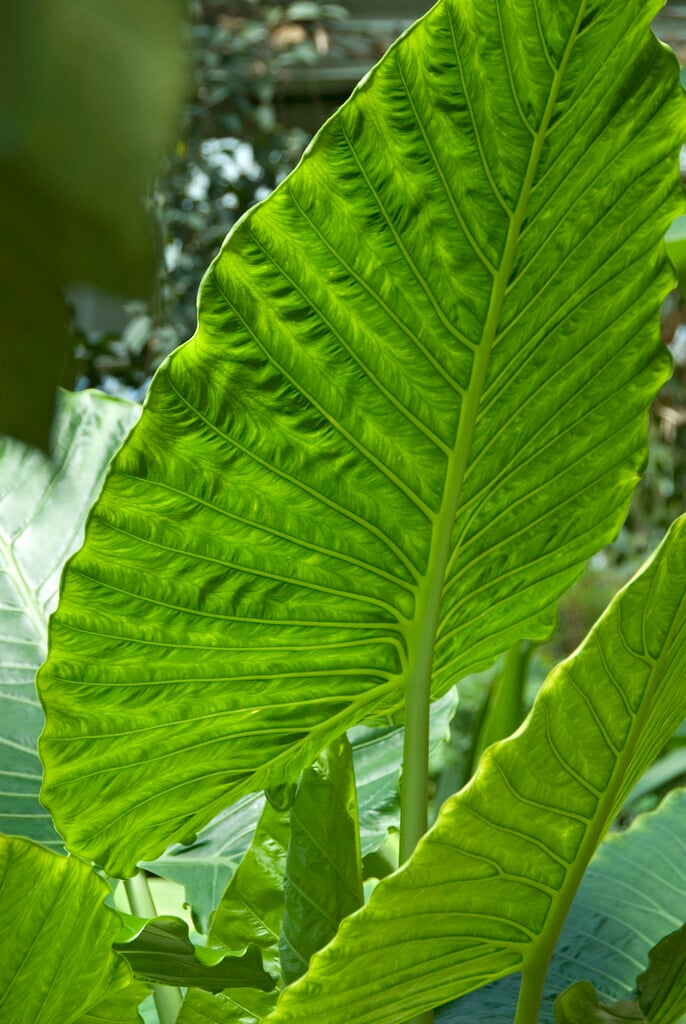Alocasia brisbanensis
A species of rhizomatous evergreen perennials native to the rainforests of Eastern Australia grown as a foliage plant, with large, rippled, spade-shaped dark green glossy foliage on dark green stems and fragrant, green-cream flowers which appear in the summer, similar to arum lily. Clusters of red berries appear on spikes after flowering

Buy this plant
Size
Ultimate height
1–1.5 metresTime to ultimate height
2–5 yearsUltimate spread
1–1.5 metresGrowing conditions
Moisture
Well–drainedpH
Acid, Alkaline, NeutralColour & scent
| Stem | Flower | Foliage | Fruit | |
| Spring | Green | |||
|---|---|---|---|---|
| Summer | Green Cream | Green | Red | |
| Autumn | Green | Red | ||
| Winter | Green |
Position
- Full sun
- Partial shade
Aspect
South–facing or West–facing
Exposure
Sheltered Hardiness
H2Botanical details
- Family
- Araceae
- Native to GB / Ireland
- No
- Foliage
- Evergreen
- Habit
- Bushy, Clump forming
- Potentially harmful
- TOXIC if eaten, skin/eye irritant. Wear gloves and other protective equipment when handling. TOXIC to pets - see the HTA guide to potentially harmful plants for further information and useful contact numbers
- Genus
Alocasia are robust evergreen rhizomatous or tuberous perennials with large, usually peltate, leaves with conspicuous veins; insignificant flowering spathes may be followed by orange-red fruits
- Name status
Correct
How to grow
Cultivation
Grow indoors in a peat-free houseplant compost with added perlite, in bright, indirect light. Water freely and apply a general liquid fertiliser every 2-3 weeks from spring to autumn. Provide high humidity by placing the container on a tray of moist gravel or pebbles. Reduce watering to a minimum in winter, and keep above 15°C. See Alocasia for further advice
Propagation
Propagate by division of offsets at the base of the plant
Suggested planting locations and garden types
- Architectural
- City and courtyard gardens
- Cottage and informal garden
- Houseplants
- Mediterranean climate plants
- Patio and container plants
- Sub-tropical
- Conservatory and greenhouse
- Flower borders and beds
Pruning
No pruning required
Pests
May be susceptible to aphids and caterpillars
Diseases
Generally disease-free
Get involved
The RHS is the UK’s gardening charity, helping people and plants to grow - nurturing a healthier, happier world, one person and one plant at a time.